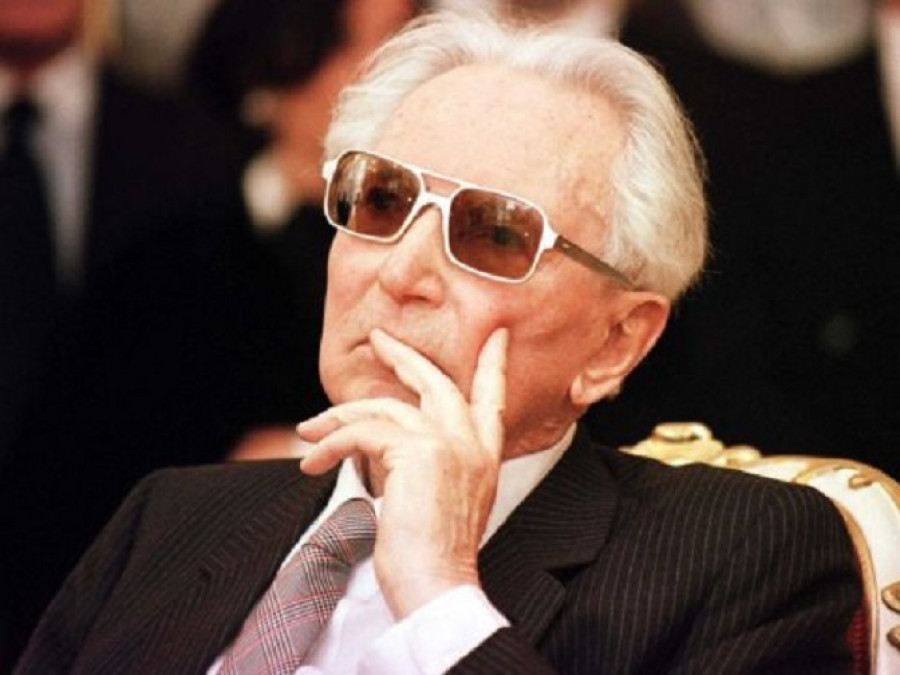There are plenty of books about the meaning of life, but when the book is written by a man who has survived concentration camps during the Second World War and who lost his family in circumstances that are hard to imagine, let alone survive, I think that such a book is worth unanimous public acclaim.
Man's Search for Meaning is a famous book written by the neurologist and psychiatrist Victor E. Frankl. The book contains two parts. The first, entitled “Experiences in a Concentration Camp” is the bulkier of the two. The second one is entitled “Logotherapy in a Nutshell”.
Victor E. Frankl's book is not an easy read. The events and personal experiences recounted by the writer in the first part of his book are terrifying. Unlike other survivors from concentration camps, who describe the monstrosities of the Nazi camps, Frankl has a totally different approach. He did not intend to write a detailed chronicle of his life as a prisoner, but to show the way the camp prisoners reacted to the extreme challenges they were faced with. Reading Frankl's testimony, one cannot help imagining how him and others like him must have felt when they were so brutally taken away from their homes and dumped in a concentration camp built to destroy and exterminate them on the basis of race.
Suicide was for many inmates an escape from camp atrocities and the author recognizes that “the thought of suicide was entertained by nearly everyone, if only for a brief time” (p. 33). A few weeks spent in an extermination camp were enough to make the prisoners completely insensitive to the suffering of their fellow men. Camp inmates experienced a sort of “regression” - a retreat to a more primitive form of mental life. As Frankl explains in the book “it can be readily understood that such a state of strain, coupled with the constant necessity of concentrating on the task of staying alive, forced the prisoner's inner life down to a primitive level” (p. 43). People who had not long before been respectable citizens had turned into beasts, ready to do anything for a piece of bread. Yet, despite the primitiveness manifested on many levels of the human being, Frankl noticed that in some cases the spiritual life of the prisoners deepened and enriched. “After all, man is that being who invented the gas chambers of Auschwitz; however, he is also that being who entered those gas chambers upright, with the Lord's Prayer or the Shema Yisrael on his lips.” (pp. 146-147).
Unlike some inmates who ended up losing their faith in mankind, others were able to find in their inner self and in their past something they could cling to in order to survive the day, the dangers, the misery, the sickness, the mockery, the hate, the contempt and so on. There are instances when Frankl tells the readers about his daydreaming about his wife, right there in the middle of the camp, and how he fed his mind on those memories, just to find the strength to go on. For example, he recounts the following episode: “For hours I stood hacking at the icy ground. The guard passed by, insulting me, and once again I communed with my beloved. More and more I felt that she was present, that she was with me; I had the feeling that I was able to touch her, able to stretch out my hand and grasp hers. The feeling was very strong: she was there. Then, at that very moment, a bird flew down silently and perched just in front of me, on the heap of soil which I had dug up from the ditch, and looked steadily at me.” (p. 55).
Frankl did not intend to demonize his torturers in his book, which does not mean that we’ll sympathize with them or excuse them for the wrongs they did. The cruelty of their behavior is described by Frankl in a detached way, without any insulting words. For example, the comment made by the neurologist that "no one has the right to do wrong, not even if wrong has been done to them” (p. 103) is quite remarkable.
The author's observations of the human nature are illustrated by short episodes from the camp life, some absolutely terrifying, others simply touching. However, it is obvious that the author’s intention was not to get excessively emotional or to stir strong feelings in the reader, but to make him understand that, if the author and others like him managed to survive the inferno of the camps and to find a meaning beyond the nonsense of the war, then every one of us has a duty to be strong, to not give up easily and to find our purpose and meaning in life.
Perhaps readers will find the second part of the book less interesting, because it deals with logotherapy and its principles and directions, in a language accessible to the laymen. Yet, it provides a good source of information about this discipline. Frankl discusses three main avenues on which one arrives to meaning in life: 1) by creating a work or by doing a deed; 2) by experiencing something or encountering someone; (3) by turning a personal tragedy into a triumph. One of the basic principles of logotherapy is that “man's main concern is not to gain pleasure or to avoid pain, but rather to see a meaning in his life”. (p. 126).
Man’s Search for Meaning addresses a wide audience and its benefits are manifold. As a person who managed to overcome dreadful vicissitudes, the author is reliably conveying to us the idea that life is worth fighting for, that man must rise above circumstances and must not surrender, even when there’s total darkness at the other end of the tunnel.
From my point of view, Frankl's book is a strong plea for man's need for a purpose in life. Without purpose, a person will experience a terrible feeling of anguish. Man falls because he thinks he has nothing to climb towards. Purpose is what drives us further. Equally important for us are the ideas that every man has a purpose, that no two people are alike and that no two people share the same goals and paths in life.
Although he does not write much about his faith in God, God has a place in Frankl's personal experience. Faith helped him look at his life from a positive perspective and thus survive the horrors of the camps. You will find in the book a few episodes where the author speaks about God’s saving intervention in his life.
Victor E. Frankl (1905-1997) was a doctor of medicine, a doctor of philosophy, an honorary member of the Austrian Academy of Sciences, an Associate Professor at several world famous universities, the author of 39 books and a speaker at countless conferences all around the world. The book Man’s Search for Meaning is an accurate reflection of the author’s noble character and his strong personality, polished by the fire of his hardships and sufferings.
A quote on the back cover of the book reads: “This book is the story of the life of a man who redeemed himself from a number to a person.” After all, no matter where we are on our life path at some point, we all have an open door to redemption.













